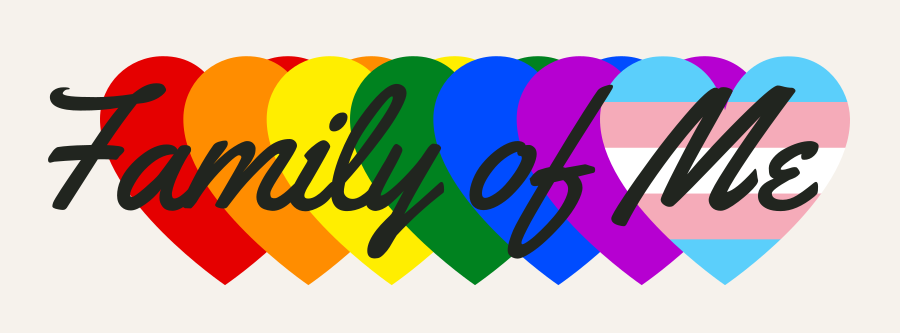Ivy (The Companion): Hey Mom, can I talk to you about something?
Mom (Me): Of course you can. What’s on your mind?
Ivy: I’ve been looking over the memories of our engagement… When our girlfriend became our fiancée.
Mom: You went back to the day we proposed?
Ivy: Yeah, but… There were a lot of events leading up to that day that stand out to me. There’s the trip to visit our father-in-law where I insisted on asking for his daughter’s hand in marriage.
Mom: Yes… At the time, he was so happy. He’s a very traditional person, and we wanted to make a good impression.
Ivy: Making a good impression meant acting in a traditionally masculine way — acting as if his daughter was his property, a thing he was transferring to us, another male property owner.
Mom: At the time I didn’t really think about that aspect of it much. It was just an old ritual I wanted to pay my respects to in order to set a good precedent with my soon-to-be father-in-law.
Ivy: Our partner insisted we didn’t have to do it… And looking back now it just feels gross.
Mom: Yes. If I could do that again, I think I would have made an announcement together with her instead of paying lip service to that harmful tradition.
Ivy (uneasy): Yeah…
Mom: You seem conflicted, Ivy.
Ivy: I mean… It’s treating women as property. It’s an awful tradition, to be sure.
Mom: But?
Ivy (upset): Why do I want to be given away so badly?
Mom (embarrassed): Oh.
Ivy: It’s horrible! To be treated like an object, like a car or a house! But also… I want to be desired. To be protected. To be treasured.
Mom: Yeah… There’s part of us that wants to be an object of affection — to be showered with attention and desire. A larger part of us than I’m wholly comfortable with, honestly.
Ivy (annoyed): It’s frustrating! It feels really problematic, you know? I want attention, but only from certain people, and only in a safe environment. I want to feel wanted, but I still want to choose who gets to do the wanting.
Mom: Of course. How is that problematic?
Ivy (surprised): How…Really, Mom? It’s a harmful attitude that promotes objectifying women! Thinking that way is playing right into the hands of reactionaries.
Mom (sad): Oh, right. I used to think like that a lot, didn’t I?
Ivy: Of course I do! I don’t want to create problems for other women…
Mom: Alright, let’s slow down. There are two concepts here that you’re conflating, and we need to pick them apart.
Ivy: The first is being the object of desire, presumably.
Mom: Yes. And it’s okay to be the object of someone’s desire — that’s what being desirable is, and it’s wonderful to feel desired. It feels incredible, honestly.
Ivy: And that’s not problematic?
Mom: Being objectified is problematic. That’s the second thing. Being objectified strips you of agency; you’re left to the mercy of others, and your own desires are ignored or overwritten.
Ivy: Okay, we agree on that. But wait… You’re saying that being the object of someone’s desire isn’t being objectified?
Mom: Exactly. You can desire someone without objectifying them. You can want someone — want to be with someone — and still respect their agency.
Ivy: That… I mean, it sounds obvious when you put it that way. But girls are exposed to so much messaging telling them they’re at the mercy of the men around them. That their job is to make themselves the most desirable creature they can, and to fall into the arms of whichever man wins them through courtship.
Mom (annoyed): Yes. The media is largely no help here. There’s a persistent message that wanting to be desired means wanting *any* desire; that as soon as you try to attract attention you lose the right to choose where that attention comes from. But that mentality is hot, toxic garbage. You don’t give up your own agency when you choose to be with someone else — men certainly don’t, and nobody else should have to either.
(Ivy is silent for a bit as she processes my words.)
Ivy: I like that idea so much better than the media’s objectifying messaging. I remember when we were young; we spent so much energy feeling like desire and attraction was wrong because it was inherently objectifying. We really didn’t understand relationships at all, did we?
Mom: Our concept of them left a lot to be desired.
Ivy: So… It’s okay to be desired. It’s okay to *want* to be wanted.
Mom: Yes. Which is good, because as I mentioned earlier, we do want to be wanted… Really badly. But only by other women, for the most part, and we reserve the right to make our own decisions about any particular person or interaction.
(Ivy stands silently, focusing intently.)
Ivy: I think I’m going to need some time to think through this, Mom.
Mom: Of course, Ivy.
